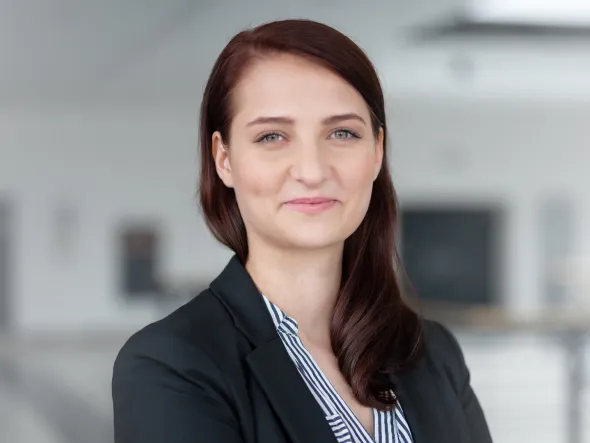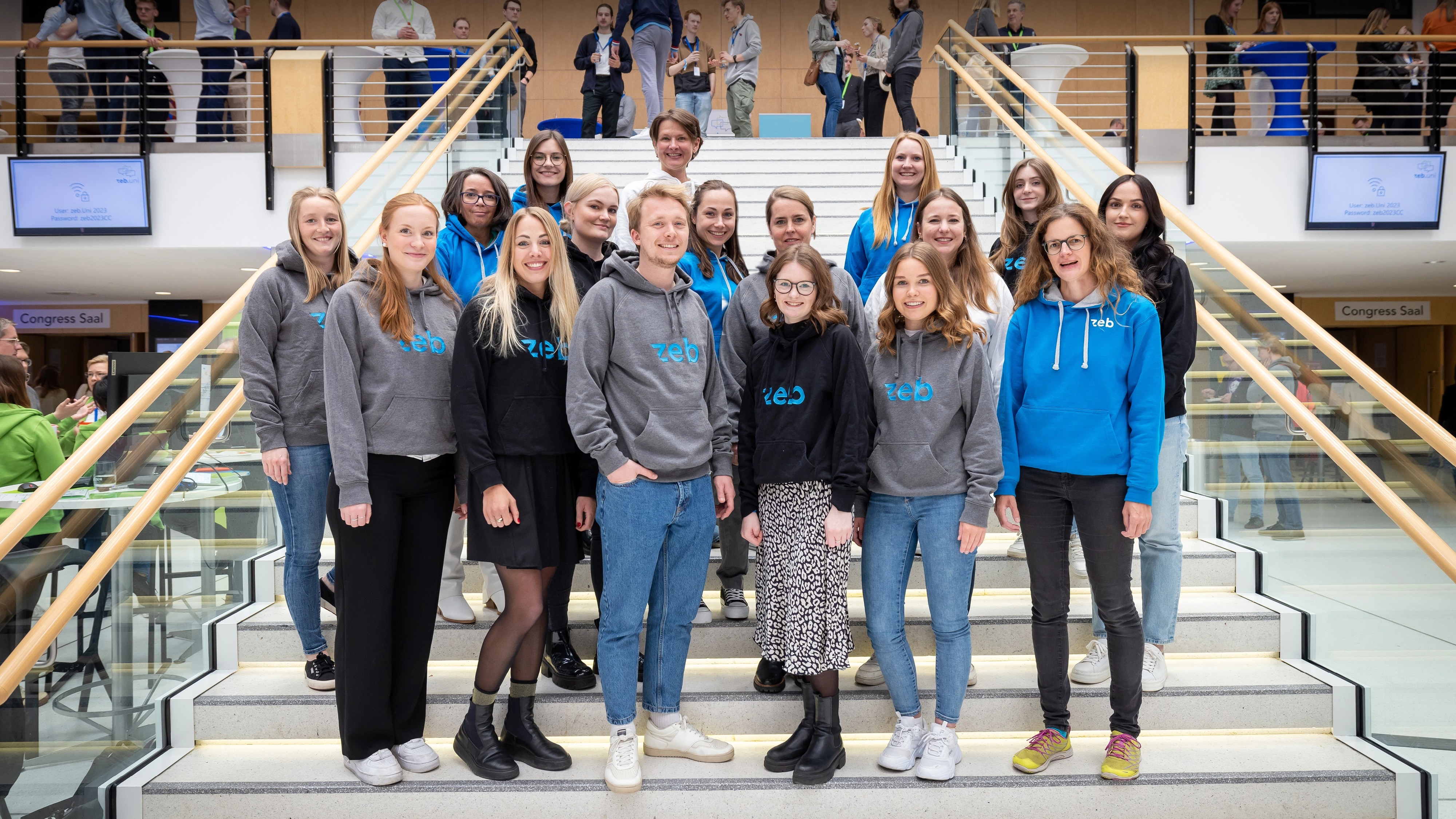Five questions for: Hannah on case studies and job interviews

Release date: 20 October 2022
Hannah has been working at zeb since 2021. In her role as Senior Consultant, she is involved mainly with the topic of advanced intelligence. In her testimonial, she talks about the importance of case studies as preparation for the future job and how they help with real-life project work. Hannah also gives personal tips on how best to prepare for interviews, because case studies are still an integral part of interviews in the consulting industry and adequate preparation is therefore crucial. She also talks about her own career start as a consultant and her project work.
What do you do at zeb, what are your tasks?
I am currently a Senior Consultant at zeb, which means that I primarily work as a consultant on client projects and acquisitions. I focus on topics related to digitalization or digital transformation, especially regarding the use of new technologies such as artificial intelligence and data analytics. In addition to project work, there are also many exciting internal tasks that I can help with and that contribute to my personal development. For example, I support internal topic development in the area of artificial intelligence as part of zeb’s strategic positioning. Furthermore, I’m involved in graduate recruiting, e.g. by looking after our contacts at KIT or taking part in events.
How did you get into the consulting industry?
Right at the beginning of my studies I already had the chance to become part of a student consultancy and to gain initial experience in implementing and managing consulting projects. It quickly became clear to me that working on projects in a motivated team and solving challenging tasks was exactly what I was looking for – which is why joining zeb was an easy decision to make.
Do you have some examples of what projects you tend to work on?
On my last client project, we supported a large IT service provider for the financial industry in setting up a new organizational unit for developing AI-based products. For example, we introduced a capacity planning system there and developed a business case for the planned products. On an internal project, our team developed an approach to estimate financial effects that can be achieved by using AI applications in banks.
How does solving a case help with real project work?
From my point of view, working on cases specifically promotes a structured approach to new tasks or topics. As a consultant I am often confronted with new situations (and usually at short notice), so it helps enormously if I can approach them in a familiar way. Being able to familiarize oneself with important information and contexts in a short period of time and to develop an initial solution approach based on this is a valuable skill that can help you a great deal in everyday project work.
Do you have a few tips on how to prepare for interviews?
Even if it sounds like a cliché, cases mean practice, practice, practice. Find someone in a similar situation and guide each other through the case studies to get a sense of possible tasks and suitable solution approaches. And one thing is really important: give each other honest, constructive feedback! For the personal introduction part, it is also helpful to prepare, for example, a one-minute and a five-minute description of the most important entries in your resume in order to be able to react flexibly depending on what’s expected in the interview. Last, but not least, speak out loud about your thought processes as you work through the case in the interview. This will help the interviewer follow your train of thought and perhaps nudge you back in the right direction with a hint or two if you get stuck.
 en
en















